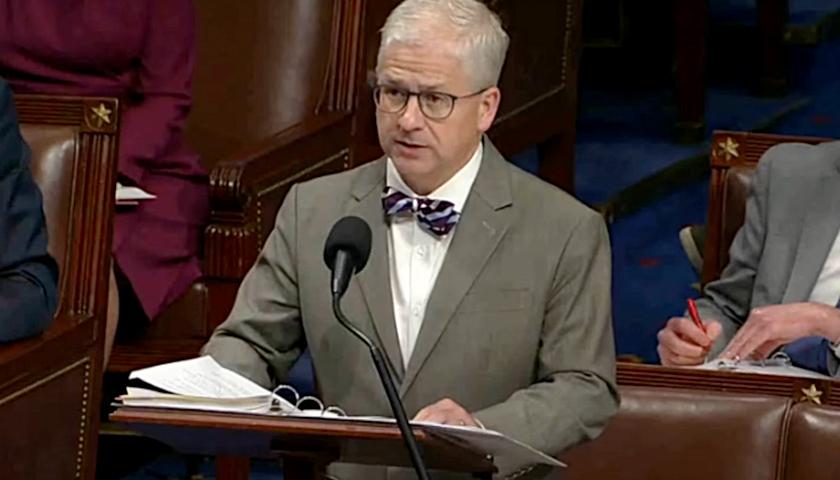by Alan Wooten
Changes for regulation of the cryptocurrency industry passed in the U.S. House of Representatives on Wednesday afternoon in legislation opposed by the White House.
Lawmakers voted 279-136, moving the Financial Innovation and Technology for the 21st Century Act – known colloquially as FIT21 – forward. Seventy-one Democrats were among those in favor.
Proponents of the legislation say it is needed to protect consumers from a Securities Exchange Commission that uses regulation by enforcement. Critics say changes to the proposal since last year would cause mass deregulation of both cryptocurrencies and some traditional securities, undermining American capital market strength.
Rep. Patrick McHenry, R-N.C., chairman of the Financial Services committee, described a tug of war between the SEC and the Commodity Futures Trading Commission for oversight of digital assets. Rep. Maxine Waters, D-Calif., the ranking member of the committee, led the debate against the bill and at one point referenced former President Donald Trump’s theme of Make America Great Again.
“FIT21 will cement the United States’ global leadership in technological innovation, invention and adoption,” McHenry said on the House floor. “Unfortunately, our current regulatory framework is preventing digital assets innovation from reaching its full potential. The SEC and the CFTC are currently in a food fight for control of these asset classes. They’ve created an impossible situation where the same firms are subject to competing and contradictory enforcement actions by the two different agencies, leaving consumers behind, leaving innovators behind.
“FIT21 fixes this by creating a regulatory framework that will provide clear rules of the road and strong guardrails for the Americans engaging with the digital asset ecosystem. At its core, FIT21 applies time-tested consumer protections to ensure the 20 percent of Americans who engage in the digital asset ecosystem can do so safely, and so more Americans can engage as well. Today, we have the opportunity to answer the calls of consumers, digital asset innovators and the Biden administration.”
McHenry called the vote a “a monumental step toward providing regulatory clarity for the U.S. digital asset ecosystem.”
Waters said the bill takes a substantial portion of the crypto industry out of the purview of the Securities and Exchange Commission and allows them to operate under either “a lighter touch regulatory regime,” under the Commodities Futures Trading Commission, or, in what she called “a regulatory no man’s land, with no primary regulator, and virtually no regulations.”
She said language in the bill was added after mark-up that would allow traditional securities to operate in the “regulatory no man’s land.” She cited a section about “contract investment assets.”
Waters called the proposal an “extreme, MAGA, Libertarian approach” to regulation, and the most harmful proposal she’s seen “in a long time.”
According to the bill, “The Commodity Futures Trading Commission must regulate a digital asset as a commodity if the blockchain, or digital ledger, on which it runs is functional and decentralized. The bill classifies a blockchain as decentralized if, among other requirements, no person has unilateral authority to control the blockchain or its usage, and no issuer or affiliated person has control of 20 percent or more of the digital asset or the voting power of the digital asset. In addition, the bill provides the CFTC with exclusive regulatory authority over cash or spot markets for digital commodities.
“The Securities and Exchange Commission must regulate a digital asset as a security if its associated blockchain is functional but not decentralized. However, the bill establishes certain exceptions to SEC regulation for digital assets that limit annual sales, restrict nonaccredited investor access, and satisfy disclosure and compliance requirements. The bill also sets forth requirements for primary and secondary market transactions.
“The CFTC and SEC must jointly issue rules to define terms and exempt dually registered exchanges from duplicative rules.”
Rep. Wiley Nickel, D-N.C., has worked across the aisle in support of McHenry and others. He told the chamber during debate the rules used were written 90 years ago before the internet was created.
SEC Chairman Gary Gensler said Wednesday the legislation could impact federal law and Supreme Court rulings related to requirements for securities issuers. He was against its passage.
Before the debate began, the White House issued a statement opposing passage but short of intent to veto.
The statement said in part, “The administration is eager to work with Congress to ensure a comprehensive and balanced regulatory framework for digital assets, building on existing authorities, which will promote the responsible development of digital assets and payment innovation and help reinforce United States leadership in the global financial system. HR4763 in its current form lacks sufficient protections for consumers and investors who engage in certain digital asset transactions.”
The Biden administration expressed hope to work with Congress for developing better legislation.
– – –
Alan Wooten has been a publisher, general manager and editor. His work has won national or state awards in every decade since the 1980s. He’s a proud graduate of Elon University and Farmville Central High in North Carolina. Wooten is the managing editor for The Center Square.




